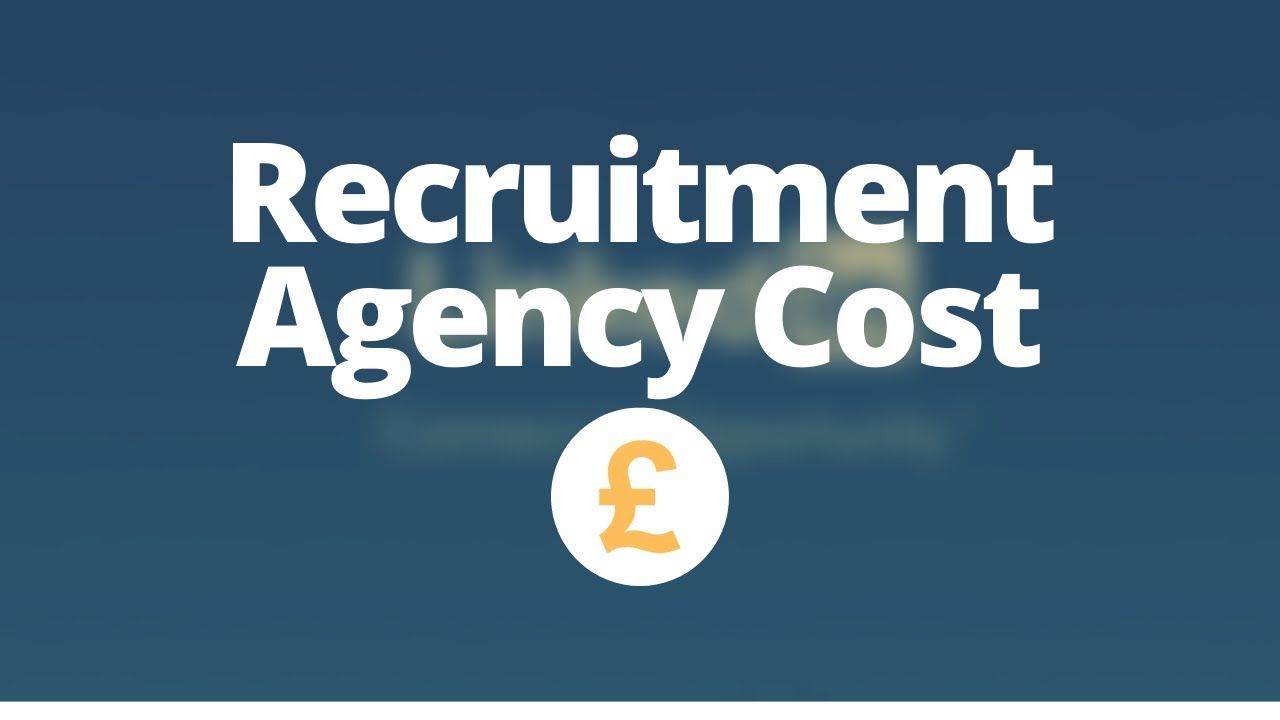Whether your company needs several new hires or there are dozens of open positions in the pipeline, someone will be charged with the task of identifying and engaging qualified candidates.
It may be that your HR department is struggling to find the right talent. It may be that your company has made the wrong hire in the past. Whatever the case, the services of recruiting agencies can be instrumental in bringing new talent to your company.
If your business is considering working with a recruitment agency for your hiring needs, however, you’re going to want to have an idea of what to expect from a cost perspective. What do fees look like, and how do they compare to your own internal hiring costs?
Let’s take a look.
Recruiting agency fee structures: direct hires vs. temporary staffing
First, it’s worth noting that fee structures vary from agency to agency, and this is largely dependent on the services the agency provides. While certain recruiting companies may provide both direct hire and temporary staffing services, many agencies specialize in one or the other.
Direct Hires
In the simplest terms, a direct hire is a “permanent” employee, paid by the employer directly. In most cases, this is a full-time position and the employee receives compensation and benefits. A direct hire is one whom the company intends to keep in the position for the foreseeable future, rather than for a season or for a specific project.
For a direct hire, a recruitment agency typically charges a one-time fee that is equal to a certain percentage of the new hire’s salary. This will usually land in the 10% – 20% range.
As a business, you’re paying for the agency to handle all of the advertising, sourcing, screening and interviewing, that is involved with finding top talent and bringing that individual to your company. You’re also paying for the agency’s expertise. The best recruiting agencies have built strong talent networks they can tap to quickly find the right person for your role.
Temporary Staffing
Temporary staffing is just that—temporary. Many temporary staffing agencies have their own temporary workers on payroll, which they assign to companies for specific periods.
It’s for this reason that your business isn’t paying the agency as much for the acquisition of talent as you are for the convenience of using one of the agency’s pool of temporary employees. If a placement is already on payroll at the agency, your business is able to secure temporary workers relatively quickly.
With temporary staffing, the company will typically pay the employee’s hourly rate and associated costs, which may include 25% – 100% in markup—all to the agency directly. The agency will then pay the employee an agreed amount or rate for the work.
The costs associated with hiring
While temporary staffing and some contract-to-hire placements may involve very few costs other than the employee’s salary (both paid to the agency), direct hires come with additional expenses that you will need to take into account.
When your company uses its own resources to make a direct hire, consider what may be at stake:
- Hiring costs: The average cost per hire is $4,129.
- Time: On average, it takes 42 days to fill an open position.
- Onboarding expenses: The average new hire costs an employer $3,000 in onboarding.
- Turnover costs: Although they vary from business to business, turnover costs can range from tens of thousands of dollars to more than 1.5 to 2 times one’s salary.
By outsourcing the hiring process to a recruitment agency, on the other hand, you have an opportunity to limit hiring costs, time spent sourcing candidates, the need for internal recruiters, turnover costs. What’s more, thanks to the expertise and recruitment methods used by the agency, you can be confident that you made the right hire.
Can you avoid recruitment agency costs?
You can the costs of a recruitment agency or headhunter by overseeing your company’s hiring internally. Keep in mind, though, that this doesn’t eliminate costs.
If you hire internally, the time and costs add up quickly:
- Job board fees to post on leading job boards
- Attending or sponsoring career events
- Writing clear and compelling job descriptions
- Sourcing candidates, reviewing resumes and scheduling multiple interviews
- Preparing interview questions and ensuring a positive candidate experience
- Planning and purchasing candidate travel for on-site interviews
- Keeping candidates informed on their status in the hiring process
- Negotiating offers and preparing for onboarding
Are recruiting agencies worth it?
So, with all factors considered, are the services of recruitment agencies really worth the amount of money you’re going to dish out?
In many cases, recruitment agencies can be the difference between a good hire and a bad hire. While your business may not have the expertise or resources to allocate to finding top talent and bringing it to your company, recruitment agencies do.
In exhausting all of the knowledge, tools, and time they have at their disposal, recruitment agencies are often able to engage passive job seekers—who, although they may not be actively searching for new employment opportunities, may be the best candidates for open positions.
If you value getting better talent through your doors and truly understand the cost of a bad hire, the fees you’re likely to pay to a recruitment agency are well worth it.
Particularly if your business operates in an industry where jobs are difficult to fill, leaning on the expertise of a recruitment agency can help your business not only make better hires but spend significantly less time doing so.












